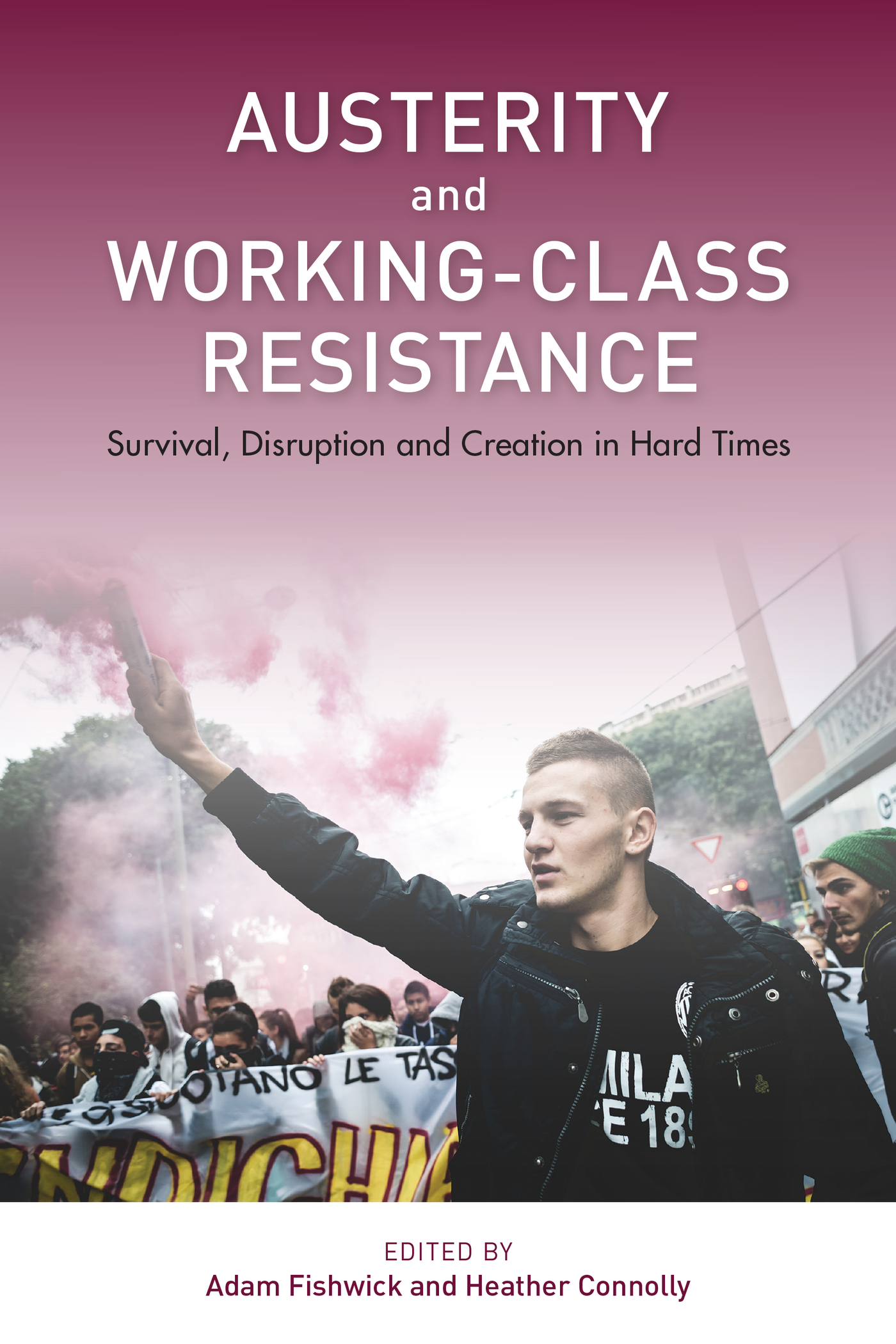Austerity and Working-Class Resistance
Austerity and Working-Class Resistance
Survival, Disruption and Creation
in Hard Times
Edited by Adam Fishwick and
Heather Connolly

London New York
Published by Rowman & Littlefield International, Ltd.
Unit A, Whitacre Mews, 26-34 Stannary Street, London SE11 4AB
www.rowmaninternational.com
Rowman & Littlefield International, Ltd. is an affiliate of
Rowman & Littlefield
4501 Forbes Boulevard, Suite 200, Lanham, Maryland 20706, USA
With additional offices in Boulder, New York, Toronto (Canada), and London (UK)
www.rowman.com
Selection and editorial matter 2018 by Adam Fishwick and Heather Connolly
Copyright in individual chapters is held by the respective chapter authors.
All rights reserved. No part of this book may be reproduced in any form or by any electronic or mechanical means, including information storage and retrieval systems, without written permission from the publisher, except by a reviewer who may quote passages in a review.
British Library Cataloguing in Publication Information
A catalogue record for this book is available from the British Library
ISBN: HB 978-1-78660-352-4
ISBN: PB 978-1-78660-353-1
Library of Congress Cataloging-in-Publication Data
Names: Fishwick, Adam, editor. | Connolly, Heather, 1978 editor.
Title: Austerity and working-class resistance : survival, disruption and creation in hard times / edited by Adam Fishwick and Heather Connolly.
Description: London ; New York : Rowman & Littlefield International, [2018] | Includes index.
Identifiers: LCCN 2018015290 (print) | LCCN 2018017706 (ebook) | ISBN 9781786603548 (electronic) | ISBN 9781786603524 (cloth : alk. paper) | ISBN 9781786603531 (pbk. : alk. paper)
Subjects: LCSH: Working classSocial conditions21st century. | Working classPolitical activity. | Protest movements. | Economic policyCitizen participation. | Social policyCitizen participation.
Classification: LCC HD4855 (ebook) | LCC HD4855 .A97 2018 (print) | DDC 306.3/6dc23
LC record available at https://lccn.loc.gov/2018015290
 TM The paper used in this publication meets the minimum requirements of American National Standard for Information Sciences Permanence of Paper for Printed Library Materials, ANSI/NISO Z39.48-1992.
TM The paper used in this publication meets the minimum requirements of American National Standard for Information Sciences Permanence of Paper for Printed Library Materials, ANSI/NISO Z39.48-1992.
Printed in the United States of America
Introduction
Adam Fishwick and Heather Connolly
Working-Class Resistance in Hard Times
This volume arose from of a series of interactions and two workshops hosted by the Centre for Urban Research on Austerity (CURA) at De Montfort University. The contributors were brought together through their commitment to the working-class struggles that their chapters seek to represent as either an activist or an engaged observer. The project developed through an organic engagement across contributors shared interest in emerging sites and practices of resistance and from how these are understood via distinct disciplinary lenses. Consequently, the volume speaks from across a range of sites and spaces of resistance, explicitly foregrounding the different levels at which we observe them, with insights from sociology, politics, international relations, labour relations and media studies on migrant labour, workplace occupation, social movements and digitalised resistance.
The collection that has emerged from this collaboration marks an attempt to shed new light on the possibilities of working-class resistance in the current moment, offering an alternative view but still speaking to recent contributions for example, from social movement studies (Cox and Flesher Fominaya 2013; della Porta 2015) or from labour relations (Doellgast et al. 2018; Gall 2013). It does this through a collaborative, interdisciplinary approach to several core questions that inform the contributions to this volume: (1) How are different working classes surviving in the context of increasing hardship, and does this produce resistance? (2) In what ways are they disrupting the institutions and structures that reproduce the political economic order? (3) To what extent can we observe resistance(s) that are creating something new within and against this? A broader question underpinning these core questions is: How far can we engage with and learn from across the range of sites and spaces identified in this volume to facilitate a broader challenge across the globe? The collection seeks to develop an ongoing dialogue around these questions by assessing the impact and continuing development of working-class resistance in and against what we term hard times.
To do this, the volume is less an assessment of the vibrant range of anti-austerity social movements that have emerged (although several chapters do make significant contributions to these debates see Shibata and Bailey; Kiersey in this volume). There have been detailed and influential accounts of these movements elsewhere (see della Porta 2015; Flesher Fominaya and Hayes 2016). The volume is, instead, about understanding the sites, spaces and practices of working-class resistance that have begun to emerge over the last decade, assessing them through the theoretical lens of survival, disruption and creation that we outline in this introduction. In doing this, our contributors offer a critical understanding of the concept of working-class resistance that advances beyond a static notion of class, situating this, as elaborated below, in contexts of hard times that combine austerity with a broad-based transformation of political economy, work, everyday life and subjectivity that is at once responsive to and generative of new protests and new modalities of resistance.
The contributions to this volume are unashamedly radical in their content, engaging unapologetically in solidarity with their objects of analysis. The authors aim to place the agency of the marginalised and actions of the oppressed in a range of sites and space at the fore of understanding the (re)construction of the world around us. Each focuses on the coalescence of local, micro, oft-concealed resistance(s) on vibrant, explosive moments of social protest, and on the mutually constitutive relationship between the two (Douzinas 2013; see Moore; Price in this volume). What ties these contributions together is an attempt to understand concretely how the actors, sites and struggles of resistance we have identified are central to constructing new ways of organising and of mobilising, as well as surviving and creating new ways of living in the face of these hard times.
It is a volume rooted in a radical critique of an era characterised by what Ana Dinerstein (2014) describes as the deepening hopelessness of neoliberalism. In part, we follow her critique as we set out to explore the way various actors are already organising hope today, linking different various Marxist-inspired theoretical perspectives that each foreground the importance of a dynamic working-class agency. This is not to fetishise the significance of what remain sporadic acts of protest, still-marginal practices of resistance and the uneven growth of collective action. In fact, as noted in several of the contributions (see Moore; Mckenzie; Fishwick in this volume), the direct opposition to and suppression of these new practices of resistance is powerful and leads, more often than not, to the defeat, dissipation or placation of resistance. But, drawing on social movement and mobilisation theory, what our volume shows is that where individuals feel aggrieved and grievance is felt as an injustice, there is always the possibility for individual and collective resistance to develop (Kelly 1998; Tilly 1978). One of the main aims of this volume is to foreground this ever-present potential, countering the marginalisation of working-class agency in everyday life and academic literature, by bringing to the fore those that are confronting the seemingly inexorable rise of hard times.
Next page
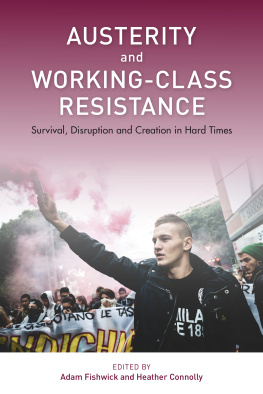

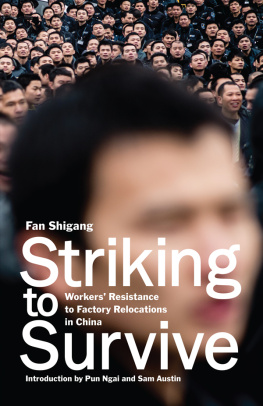

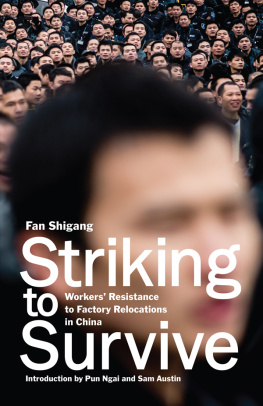
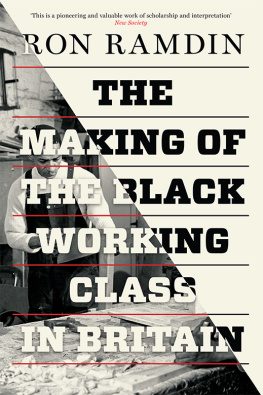
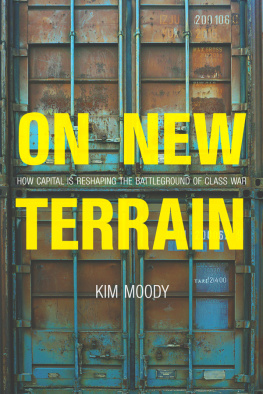

 TM The paper used in this publication meets the minimum requirements of American National Standard for Information Sciences Permanence of Paper for Printed Library Materials, ANSI/NISO Z39.48-1992.
TM The paper used in this publication meets the minimum requirements of American National Standard for Information Sciences Permanence of Paper for Printed Library Materials, ANSI/NISO Z39.48-1992.